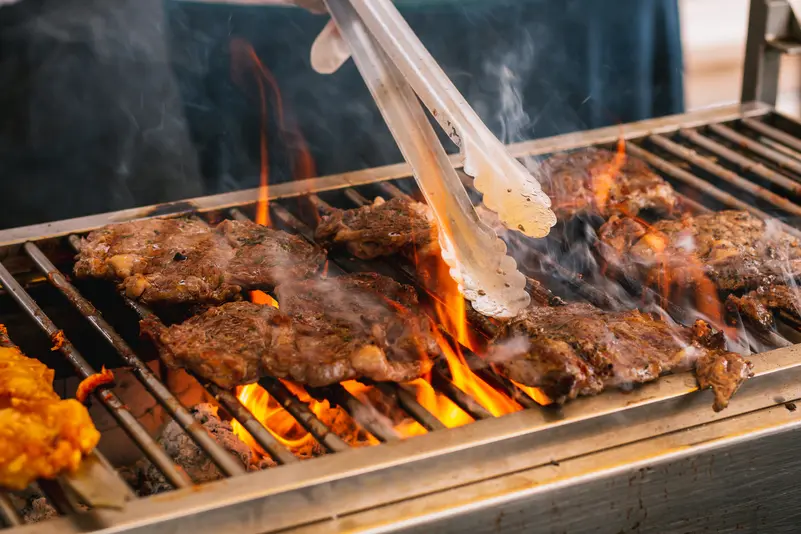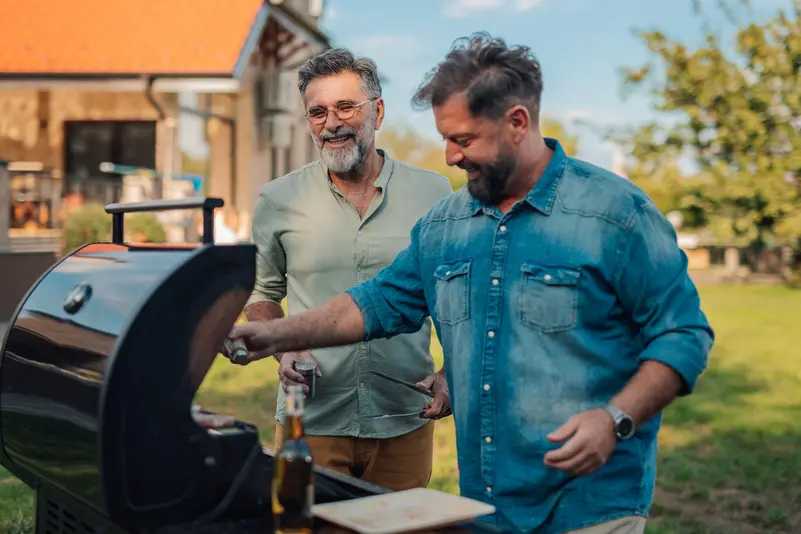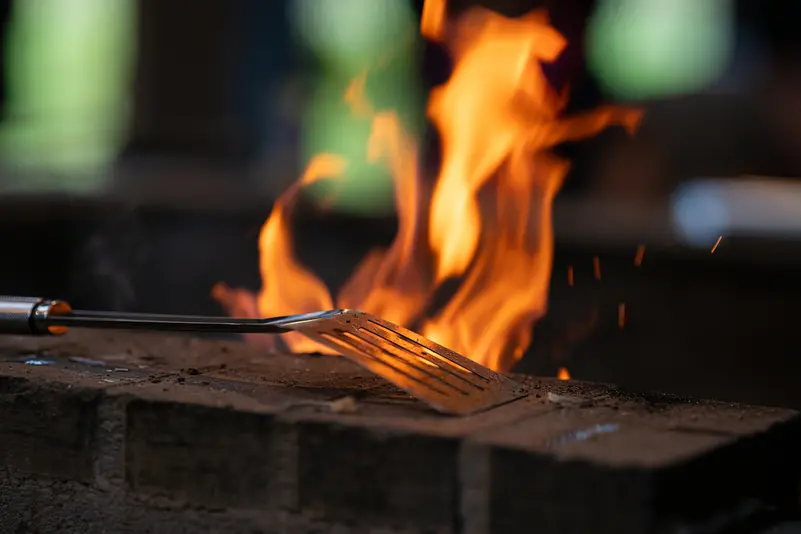Dubai, United Arab Emirates – Barbecuing meat is a favorite ritual for millions around the world.
But it may hide a health risk that many people are not aware of.
A new 2025 survey by the American Institute for Cancer Research shows that the majority of Americans are unaware that cooking over high heat or an open flame can produce carcinogenic chemicals.
According to the survey results, only 20% of participants were aware that grilled meat is linked to an increased risk of certain types of cancer.
This indicates a huge gap in nutritional awareness.
But experts stressed that this does not mean stopping eating grilled meat completely.
Rather, it is necessary to know the risks and how to reduce them with safer cooking methods.

Why might grilling cause cancer?
In this context, Dr. Daniel Landau, an oncologist at the University of South Carolina, explained that cooking at high temperatures leads to a chemical reaction in fats and proteins that produces two types of carcinogenic compounds: heterocyclic amines (HCAs) and polycyclic aromatic hydrocarbons (PAHs).
He adds that these substances can cause changes in DNA over time.
Which increases the risk of developing cancers such as colon, rectum, prostate and pancreas.
Landau also emphasized that the risk is not related to a single barbecue meal, but rather to repeated and continuous exposure to these compounds over years.

How to grill safely?
Many experts have explained that we don’t have to give up grilling, but rather follow some simple practices to reduce the risks.
First: Season the meat well before grilling. Soaking it in the marinade for at least half an hour significantly reduces the formation of carcinogenic compounds.
Second: Constant stirring. It is recommended to turn the meat frequently to ensure even cooking and reduce the burning of the outer surface.
Third: Avoid direct flame, by using the “indirect grilling” method or partially cooking the meat in the oven before placing it on the grill for a short period.
Fourth: You can remove the charred parts. It is recommended to get rid of the burnt pieces and avoid broth made from charred meat remains.
It contains high levels of carcinogenic substances.

Fifth: Choose leaner meats, as lean meats – such as chicken or fish – reduce the dripping of fat onto the flame, thus reducing the production of toxic fumes.
Finally, it is preferable to adjust the heat, by using a medium and constant heat instead of a strong flame.
This reduces the chances of harmful compounds forming.
Studies confirm that daily cooking patterns play a role no less important than the type of food itself.
Frequent reliance on grilling or frying over high heat may double health risks.
While a balance between slow cooking and other healthy methods such as boiling or steaming may provide effective long-term protection.

















